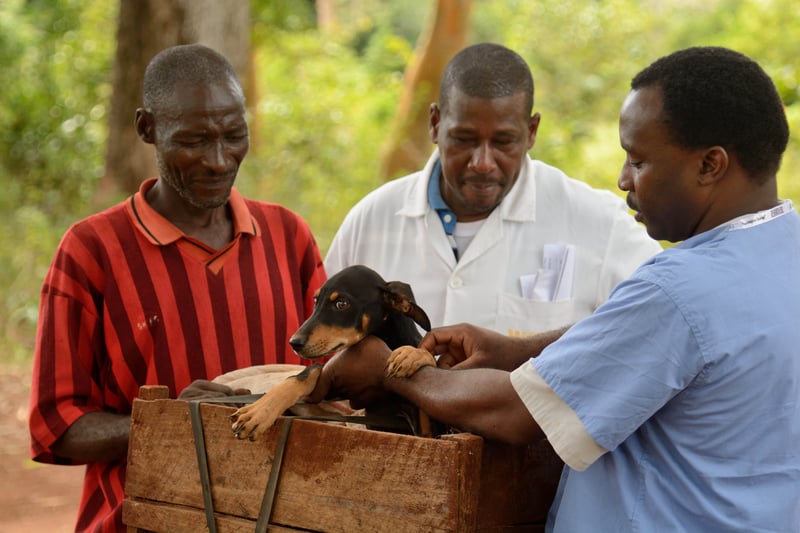
Protecting dogs and people in Kenya
News
On World Rabies Day, last September, we supported the vaccination of more than 3,000 dogs in Makueni County, Kenya and helped launch a national plan to eliminate human rabies from the region.
The new strategy was launched by Kenyan government principle secretaries, from the Ministry of Health and of Agriculture, Livestock and Fisheries, as well as the Governor of Makueni Country, Professor Kivutha Kibwana.
Makueni Country is one of five pilot counties targeted by the Kenyan government in a new strategic plan to eliminate rabies. Our teams are working closely with government officials to advise on the humane treatment of animals with the disease.
Prof Kibwana said: “Robust public education is necessary for people to embrace dog vaccination so as to eradicate this costly, worrying and life threatening disease.”
The principal secretary for Livestock, Fred Segor, said: “With the help of partners such as World Animal Protection and Centers for Disease Control and Prevention (CDC), we hope that by the year 2030, we will have a rabies free nation.”
On World Rabies Day itself, 3,000 dogs were vaccinated in 17 different places across Makueni County, Kenya. Alongside education on dog handling and care, there was a competition for the dog in the best condition of health.
A scientific conference with the theme, ‘Together against rabies’, was also held in Makueni, drawing vets from across Kenya. It covered the context and history of rabies in Kenya and the ‘One Health’ approach, as well as raising awareness of rabies to residents of Kathonzweni, in Makueni Country.1
Battling rabies in Kenya: what else should you know
- Rabies has been endemic in Kenya since the first case was reported in 1912
- In 2012 the government of Kenya set up a Zoonotic Disease Unit (ZDU) to improve the surveillance, prevention and control of zoonotic diseases in the country. Rabies was identified as one of the highest priority diseases.
- In April 2013 we attended a workshop run by the ZDU, with government representatives, universities and other organisations including the UN Food and Agriculture Organization (FAO) and World Health Organization (WHO) amongst others. Together, the workshop produced Rabies Management Guidelines and the Rabies Elimination Strategy that was launched last month.
Find out more about our work in Africa.
1'One Health' is an approach encouraging collaboration on a local, national and international level, to achieve the best possible health for people, animals and the environment. See more in our leaflet, Controlling rabies.
Image: A man brings his dogs to be vaccinated against rabies in Zanzibar, Tanzania (Andrew Morgan)
“With the help of partners such as World Animal Protection, we hope that by the year 2030, we will have a rabies free nation.